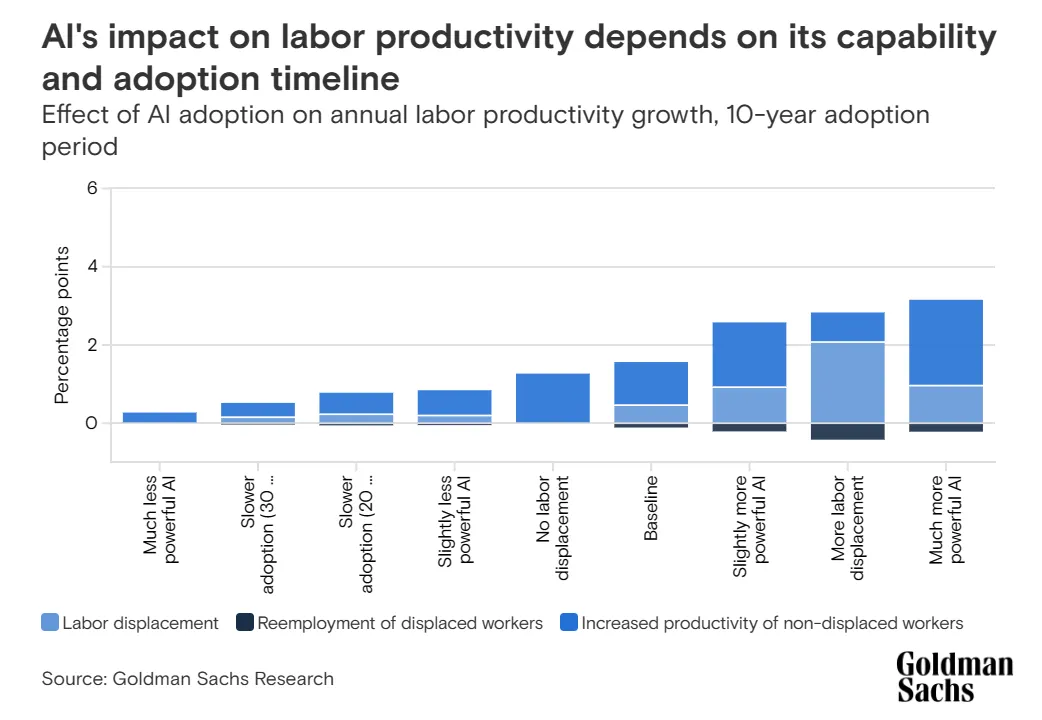
The potent combination of the internet and ubiquitous smartphones led us to ask whether we should bother remembering anything if the world’s knowledge is readily available anywhere we go. With the rapid mainstream adoption of AI, people are naturally discovering ways to minimize—or avoid—work. But what could that mean for our brains?
Among college students, at least, excessive use of generative AI tools like ChatGPT can lead to procrastination, memory loss, and lower academic performance, according to a recent study that asked, “Is it harmful or helpful?”
The research—published in the International Journal of Educational Technology in Higher Education—found that students who faced higher academic workloads and time pressure were more likely to use ChatGPT. However, increased use of the AI tool ultimately hurt their grades.
“Not surprisingly, use of ChatGPT was likely to develop tendencies for procrastination and memory loss and dampen the students’ academic performance,” the study warned.
Students who frequently used ChatGPT for their academic tasks had poorer cumulative grade point averages (CGPAs), according to the study, which the authors note aligns with growing concerns raised by educators who consider AI use “deeply harmful to a social understanding of knowledge and learning,” with the potential to “kill creativity and critical thinking.”
Lead author Muhammad Abbas did not immediately respond to a request for comment from Decrypt.
The researchers do acknowledge some benefits of leveraging AI tools, noting that students who are concerned about “excellence, accuracy, and reliability in their work” are more likely to use ChatGPT to help with “grammar, style, and language precision.”
Nonetheless, they recommend using AI only when absolutely necessary.
“Over-reliance on external sources, including generative AI tools, without personal engagement and active learning, can hinder the development of essential skills and the depth of knowledge required for academic success,” they wrote.
Beyond the classroom
While AI is relatively new, this latest study is hardly the first to explore the impact of the emerging technology, with scores of researchers focused on its implications for education and work.
A regional study of 285 undergraduate students published by the scientific magazine Nature found that AI use can lead to laziness and addiction among users, particularly in educational settings.
“The findings show that 68.9% of laziness in humans, 68.6% in personal privacy and security issues, and 27.7% in the loss of decision-making are due to the impact of artificial intelligence in Pakistani and Chinese society,” the study said. “From this, it was observed that human laziness is the most affected area due to AI.”
The Nature study also warned that lazier students aren’t the only worrisome outcome. As users increase their use of AI, the researchers said, over-reliance on technology for even simple tasks can result in a loss of human skills—and increased stress when physical or mental measures are later required.
The researchers concluded that AI can negatively impact human cognitive abilities by reducing the need for mental effort and analytical thinking, potentially leading to a decline in problem-solving and decision-making skills.
I love that AI is able to give me snippets of code, helps in quickly developing stuff.
But it makes me feel like I’m getting dumber by the minute, as it sort of makes me unable to resolve issues (which you will have) with the code myself. #buildinpublic
— Erik (@erikvdcom) August 17, 2023
A separate report published by Goldman Sachs in 2023 argued that “shifts in workflows triggered by these advances could expose the equivalent of 300 million full-time jobs to automation.” The Informing Science Institute has meanwhile warned that the constant use of AI in the job market may increase the pace at which skills become obsolete—requiring workers to adapt by either investing in education or pivoting their professional expertise to remain relevant.

These are darker scenarios than the happy vision of a jobless society painted by Elon Musk and others who embrace technological utopianism.
It’s not just AI
Artificial intelligence may be the latest disruptive technology to shake the foundations of society, but it’s only the latest in a series of tectonic shifts in recent history.
In 2014, a group of UCLA researchers conducted an experiment involving two groups of children from a California public school. One group, the control, proceeded without making any changes to their routines. The other went camping, cut off from social media and smartphone interactions. After the digital detox, both groups were shown video clips to assess their ability to understand human emotions.
“Researchers found that children deprived of all digital media performed significantly better at interpreting emotions than those allowed to access social media,” CTV news reports.
Just as AI minimizes the need for critical thinking to solve problems or complete tasks, smartphones and social media increased distractions and reduced physical human interactions.
Even simple communication between people is being changed by tech. A notable 2017 study honed in on the trend toward using emojis and abbreviations in shorter text messages, and concluded the practice impaired the ability to participate in longer, more nuanced conversations that demand better listening and speaking skills.
In other words, popular trends such as “explain this to me like I’m five,” the “I ain’t reading all that” meme, or even the total disregard for capitalization notably practiced by Sam Altman, are all ways tech trends are changing society—and arguably making us less intelligent.
Edited by Ryan Ozawa.
Stay on top of crypto news, get daily updates in your inbox.
- Liquid Cloud, Microsoft Collaborate to Deploy Hybrid Cloud Infrastructure in Africa
- Examining Dave Umahi’s prophecy about President Tinubu’s eight year reign By LAW MEFOR — National Accord Newspaper
- “The baby looks like her stepdad” Netizens react to adorable video of King David holding Queen’s daughter
- Nigerian rapper, Oladips is dead
- Niger: Gov Bago Commissions 200 CNG Buses, Decrees Free Ride For Students
- Derelict State Of The Nigerian Highways – Independent Newspaper Nigeria





